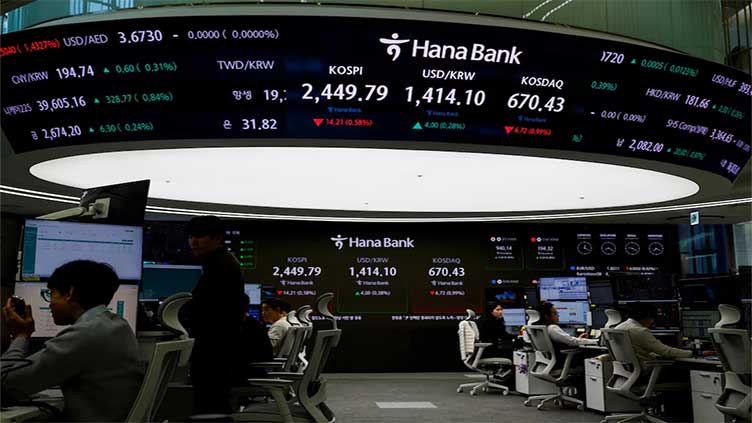Asian shares cautious on Korea risk, dollar on guard ahead of payrolls

Business
In Asia, MSCI's broadest index of Asia-Pacific shares outside Japan reversed losses to be up 0.2%
SYDNEY (Reuters) – Most Asian shares fell on Friday as political ructions in South Korea weighed on sentiment, while dollar bulls waited anxiously to see if US payrolls challenged or cemented expectations of a rate cut this month.
Chinese shares, however, climbed to three-week highs as investors scooped up technology shares ahead of a top-level policy meeting next week that will set the agenda and targets for China's economy next year.
Europe is looking ahead to a lower open with EUROSTOXX 50 futures down 0.4% and FTSE futures off 0.1%. US stock futures were down a fraction ahead of the crucial payrolls report.
Forecasts are centred on a rise of 200,000 jobs in November, rebounding from a soft 12,000 gain in October when the result was impacted by hurricanes and strikes. The unemployment rate likely edged up to 4.2% from 4.1%.
Markets are priced for a Goldilocks outcome: neither so strong that it would threaten the prospects of a rate cut, nor so soft that it would stir up concerns about the economy. Futures imply a 70% chance of a rate cut by the Fed on Dec. 18.
"It's likely this time the key number will be the unemployment rate," said Padhraic Garvey, regional head of research, Americas, at ING.
"If that sticks at 4.1% then we are left with a glass half full labour market. If it rises, then signs of underlying weakness would be more clear-cut."
In Asia, MSCI's broadest index of Asia-Pacific shares outside Japan reversed earlier losses to be up 0.2% thanks to the rally in Chinese shares.
Both China's blue chips and Hong Kong's Hang Seng jumped 1.3%, the outperformers in the region.
The other big movers are in South Korea where the parliament is discussing the impeachment of President Yoon Suk Yeol for trying to impose martial law.
Fears about a second martial law declaration sent the Korean won tumbling as much as 1% and the KOSPI down 1.8%, although they narrowed losses after suspected intervention by authorities in the forex market.
Calming nerves somewhat, South Korea's special warfare commander said he would refuse to implement any new order for martial law. The acting defence minister also said he would not obey any order to impose martial law.
Japan's Nikkei fell 0.9% but is up 2.2% for the week. Data showed Japan's local wages grew at the fastest pace in 32 years in October, although markets are still leaning towards no rate hike from the Bank of Japan this month.
BITCOIN REVERSAL
Bitcoin, which hit the $100,000 mark for the first time as investors bet on a friendly US regulatory shift, ran into profit-taking. It tumbled as far as $92,092 before steadying at $97,873 on Friday, up 0.8% for the day.
"This spike in volatility over the last 24 hours has the hallmarks of a classic blow-off top," said Tony Sycamore, analyst at IG.
"While we don’t see this as the end of the Bitcoin bull run, it does signal we are entering a consolidation phase in the days/weeks ahead."
Trump late on Thursday said he was appointing former PayPal Chief Operating Officer David Sacks to be his White House Artificial Intelligence and Crypto Czar.
In the foreign exchange market, the mighty US dollar fell 0.6% overnight against its peers and was pinned near three-week lows at 105.84 on Friday.
Treasuries were mostly steady on Friday. The two-year yield held at 4.152%, while 10-year benchmark Treasury yields were flat at 4.172%.
Oil prices were flat as the decision from OPEC+ to delay a planned hike in output to April highlighted concerns about weak demand. US West Texas Intermediate (WTI) held at $68.30 a barrel, having dropped 0.4% overnight.
Gold remained in a tight range and was up 0.2% at $2638.22 per ounce.


